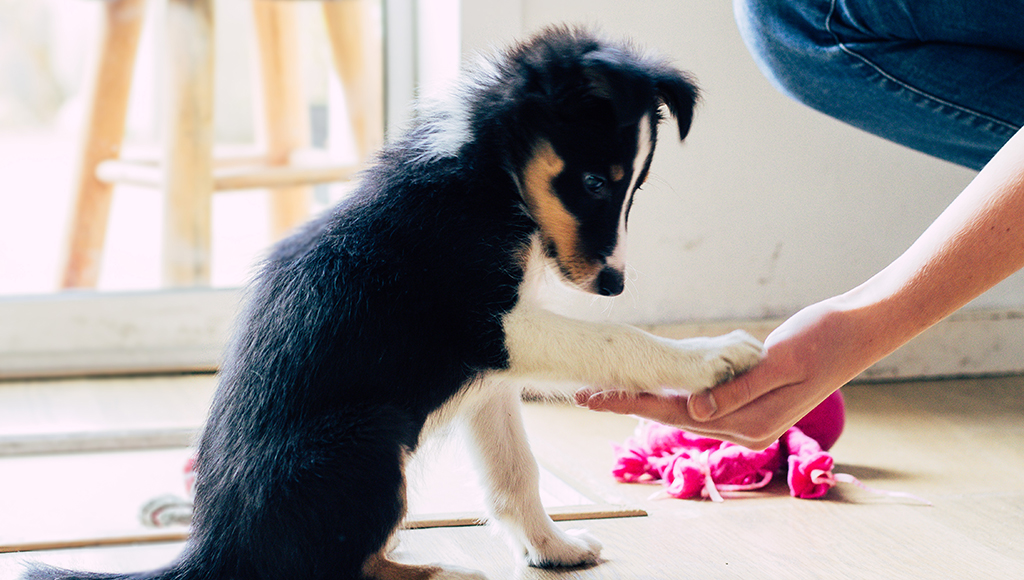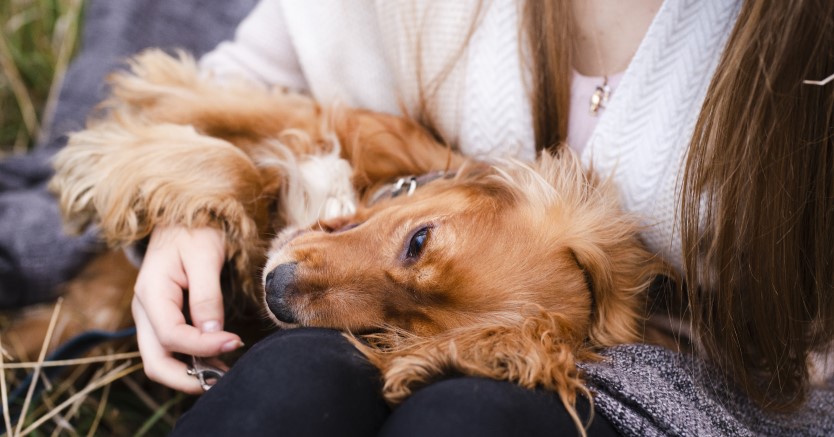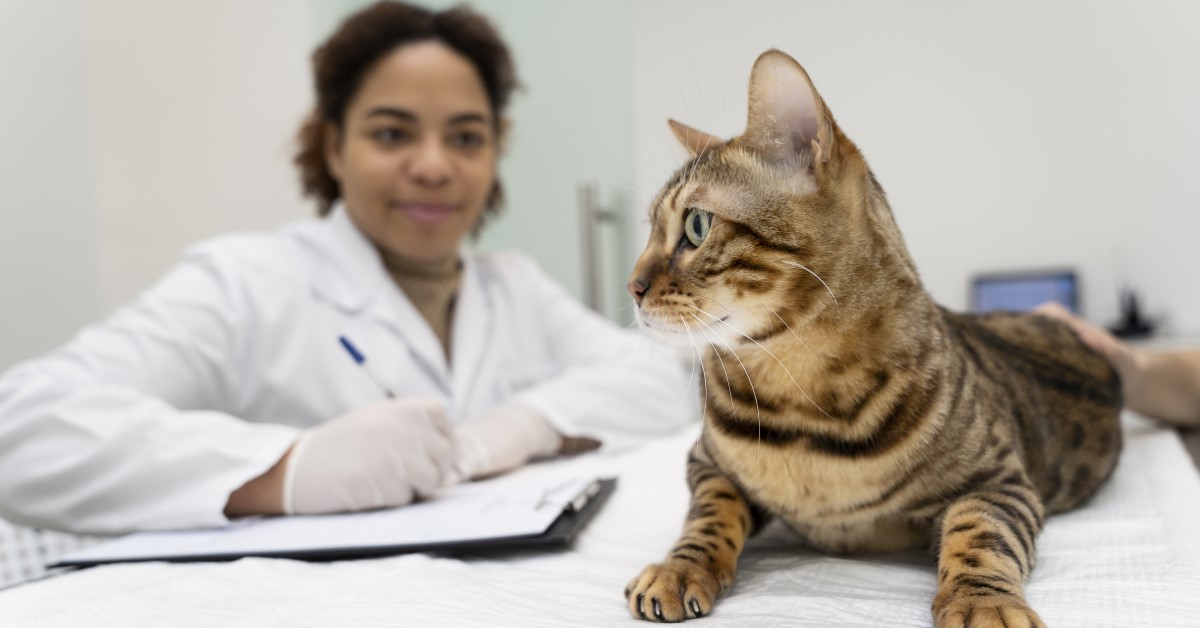Bringing Home Baby!
Some helpful information when preparing to bring home a new puppy.

Everyone loves puppies, especially children. But caring for a new puppy takes a lot of patience to go along with the love you’ll be giving it, in order to make the experience an enjoyable one. Puppies, as playful and as carefree as they seem, learn and develop habits quickly, so before bringing a puppy home, it is important to plan out how the puppy will interact with you and your home – where it will sleep, what rooms it is allowed in or not allowed in, etc.
When a puppy is first brought home, it is common for the puppy to miss its mother and whine or cry during the night. Until this new addition to your family bonds with you and becomes accustomed to its surroundings, whimpering will probably be the norm. Although this whimpering may cause several sleepless nights, it’s important that you do not teach the puppy that if it whimpers you’ll come to comfort it. Like a young child, the puppy does not have control over its emotions but learns very quickly the results of making the whimpering sound. If you feel it is necessary, you can comfort the puppy with soothing sounds and a gentle touch – although picking up the puppy to cuddle it will reinforce its desire to whimper in order to be cuddled. When picking up your puppy from the breeder, ask the breeder for a cloth or toy that has been with the mother and that carries the mother’s scent to provide additional comfort during the separation phase.
Be sure to provide your puppy accommodations that are both comfortable and that make him feel safe. A snug, warm area, like a travel crate can provide the needed comfort a new puppy desires. Place a warm, loose blanket on the bottom of the crate so that the puppy can burrow into a comfortable sleeping position. If your puppy is having a hard time learning to settle down at bedtime, place a light sheet over the opening of your puppy’s sleeping space. The puppy will come to learn that when the sheet is over the opening, it’s time to go to sleep. If you choose to let your puppy sleep in your bed with you, remember that this habit will be extremely difficult to break as the dog gets older. Puppies that are allowed to sleep in the owner’s bed will grow into large unwelcomed sleeping partners later in life.
Puppies are inherently mischievous and extremely determined. In an effort to contain their enthusiasm, puppies will need a safe place to play and explore during the hours of the day when they are unattended. Make sure to keep small objects that they may choke on out of reach, as puppies are not afraid to try chewing or picking up a new or interesting object with their mouths. Just like children, puppies must be watched closely and protected from household dangers.
When leaving your puppy outdoors during the day, make sure it has plenty of food, water, shade and a comfortable place to stay. Lonely puppies will find trouble and develop bad habits of digging, barking and destroying things around the yard. The more time you spend with your puppy, the quicker they will learn what is and is not acceptable behavior and become a wonderful, integrated part of your family.
Potty training can be a difficult and frustrating experience with a puppy, but following a few simple rules will make the process much easier. Puppies should begin potty training as soon as they are brought home. Like children, puppies usually need to go potty when they wake up, after they eat, and after they play. Take the puppy outside at these times and be patient in waiting for them to accomplish the task. Always praise your puppy when it goes potty outside at the appropriate time. If your puppy does not go potty while outside, take him inside so that he’ll quickly associate outside time as potty time.
When it is not possible to supervise your potty training puppy, the puppy should be tied up close to its sleeping box or placed in a small kennel. Dogs have a natural instinct to keep their living space clean and will not go potty when confined to a small space, especially near their sleeping area. Watch for signs that your puppy needs to go potty – sniffing, scratching at the floor, or circling. If your puppy does have an accident indoors; show them the accident and tell them “NO!” It is not necessary to rub your puppy’s nose in the mess. Take your puppy immediately outside and clean up the mess inside. Make sure to use ammonia based cleaner to eliminate the smell completely – any remaining scent in the house will only encourage future accidents.
Spaying and Neutering is very important and should not be neglected or forgotten. Males can be neutered at 6 months old. Delaying neutering beyond 6 months increases the likelihood of testicular and prostate cancer. Females can be spayed before the puppy’s first heat cycle. As with males, delaying spaying beyond the first heat cycle increases the likelihood of breast and uterine cancer.
It’s important to remember the extra time and care you give your
puppy in teaching them good habits while they are young will
provide you with a wonderful companion and years of heartwarming
joy and love. Patience and persistence will help your newest
member of the family become a welcomed and happy addition!
Ready to start saving money on pet wellness care?
Then take a look at Mint Wellness, the pet wellness plan that provides fast reimbursement on routine pet care. Save on vaccinations, wellness exams, preventatives, dental, and more!
Learn More


